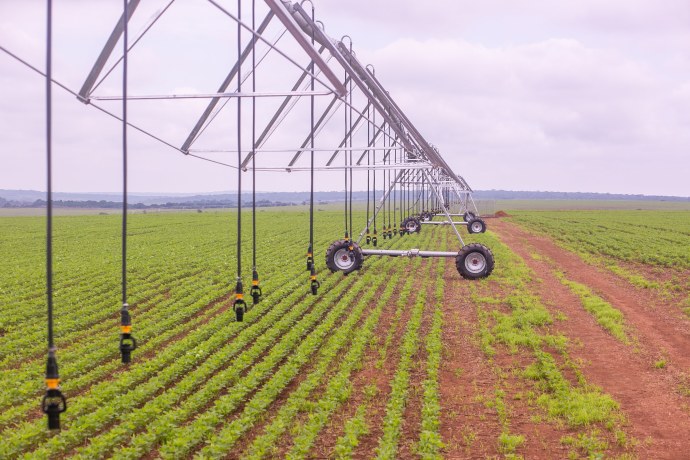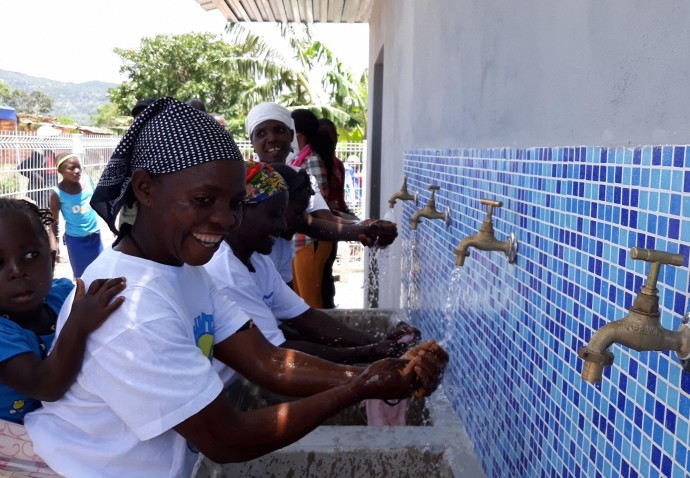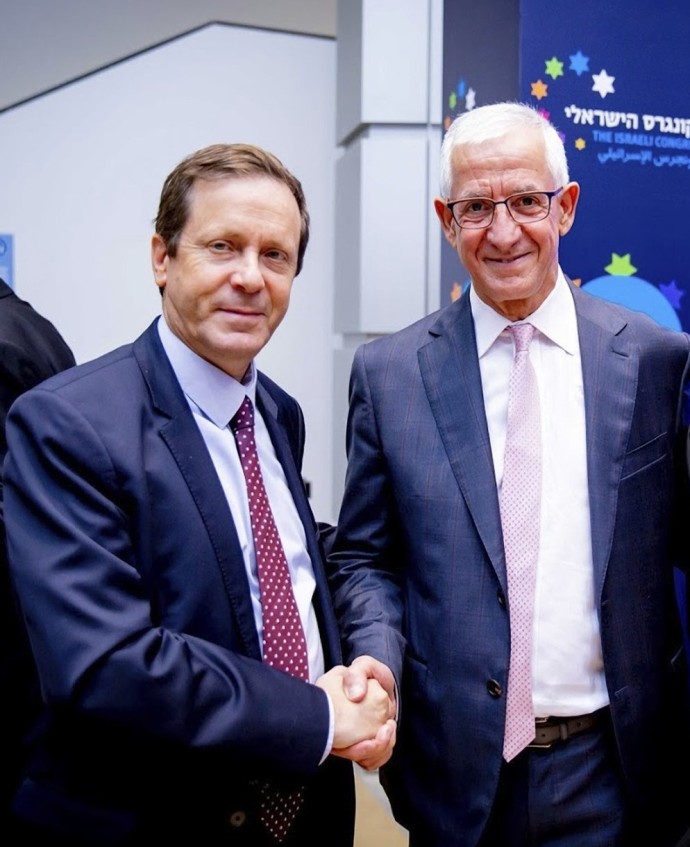There are two places in the world that give me goosebumps,” says Haim Taib, businessman and philanthropist. “When I drive through the hills to Jerusalem, I get a special feeling because I was born there, and when I land in Africa, I have that same feeling.”
As president of the Mitrelli Group and the founder of the Menomadin Foundation, Haim Taib and his team have developed innovative, pioneering solutions for the African nation of Angola in such areas as telecommunications, water, healthcare, housing, education, and energy. Over the past 30 years, Taib and his team have been a vital force for positive change in Africa, utilizing Israeli technology to bring Angola back from the brink after its devastating civil war.
At the upcoming Jerusalem Post London Conference, Taib will be sharing his unique nation-building model based on his successes in Angola and across Africa, its connection with the State of Israel, and how it can be expanded to other countries on the African continent.
Haim Taib is a visionary with a remarkable life story. In an in-depth conversation with The Jerusalem Post, he shared his vision for Africa and Israel and how the unique synergy between Israel and the African continent can help create a better world.
“Whatever I have achieved does not belong only to me,” says Haim Taib, “I place great importance that every business endeavor I am involved in gives back to the local community in which it operates and will create sustainable and long-term solutions.” Taib reflects on his childhood and how his upbringing influenced him to bring many of Israel’s innovative agricultural, technological, healthcare and social successes to Angola.
Born in Jerusalem in 1960 to Jewish-Tunisian immigrants, Taib grew up in Olesh, a small agricultural settlement in central Israel. “My father knew nothing about agriculture,” he says, “but he understood that agriculture is the way to establish a nation.” The family struggled in their new surroundings – his father had to work at three jobs and his mother at two – to make ends meet, and Taib says that his father worked around the clock to earn enough money to feed the family.
During the week, Taib and his seven siblings subsisted largely on bread, and he recalls his mother sending him to the neighborhood grocery to purchase seven loaves of bread for the family. Shabbat and holiday dinners were the only time the family splurged and served meat.
Despite the difficult financial situation, Taib experienced a pleasant childhood. “We grew up on the values that my father spoke about – respecting others, loving the Land of Israel, and helping others in need.” When his friends in the Moshav spent the summer holidays playing outside, Haim had to work in the orchards to help his family.
IN 1979, Taib entered the IDF and joined the armored tank corps. He served in the First Lebanon War in 1982 and remained in the army for an additional year after the war. Upon receiving his military discharge, Taib decided to forgo university studies and entered the workforce. He worked for an Israeli agro-tech company specializing in turkey breeding, achieving a 97% fertility rate, surpassing the numbers achieved by other technologies at the time.
In 1989, Taib left Israel for the first time, traveling to Portugal to work for a joint Portuguese-Israeli venture that exported eggs from Israel to Portugal. After two years, he decided to look for other opportunities – “I had enough of birds and decided I could do better things” – and went to Angola in September 1991 on behalf of an Israeli-owned
Portuguese company to develop its business interests there. From the moment he landed in Africa, Taib was enchanted with the continent and its possibilities.
Angola was in a state of turmoil when Taib arrived. It had been a Portuguese colony and achieved independence in 1975, becoming a Marxist-Leninist republic. Angola was soon torn apart by civil war between the ruling party and anti-communist forces. The war lasted until 2002, and more than 800,000 people died in the struggle. Taib saw the catastrophe of war unfolding but also recognized the unique human assets and the country’s potential. He decided to remain to develop the economy and help Angola become self-sufficient once again, after the war had devastated its local production ecosystem and supply chain.
Taib’s first venture in Angola was importing rice from the Far East. “After a few years,” he recalls, “I recognized that there was potential in connecting the knowledge that I had learned at home – what the State of Israel could contribute through its knowledge and technical expertise, together with their needs.”
Taib and his associates established Movicell, the first cellular phone company in Angola, and utilized Israeli technical expertise to get the company underway. After seven years, he donated the company to the Angolan government.

Next, the company provided services to the Angolan Airport Authority, again utilizing Israeli technology to modernize the country’s airports.
In 2002, the civil war finally ended, but the country was in ruins, with its infrastructure largely destroyed. The situation was so dire, Taib says, that local bakeries had to import bread from South Africa. Taib met with José Eduardo dos Santos, the Angolan president, and recommended that Angola emulate Israel in advancing agriculture as a path to success. “I suggested that we imitate what our parents did in Israel – to strengthen the country via agriculture,” says Taib, “and I said, ‘Let’s make communal settlements in Angola. Let’s do what the Zionist enterprise did.’” In Israel, such settlements are known as kibbutzim and moshavim.
Taib suggested that the Angolan government utilize discharged soldiers from both sides of the recently ended conflict to build cooperative settlements. Former president José Dos Santos was enamored with the idea, and Taib created the program with the assistance of other Israelis. “We called it Aldea Nova, which means ‘the new village’ in Portuguese.”
Dos Santos allocated a vast area of 20 hectares in a stunning valley in northwest Angola – close to 50,000 acres – for Aldea Nova, which built 18 villages, each housing between 150 and 180 families. Residents raised chickens and cows and grew vegetables. The project remains active and is considered one of Africa’s most successful ventures, providing for over 1,200 families and many other thousands who benefit from its products.

Aldea Nova was not only successful in providing food and employment but in implanting peaceful relations among soldiers who had fought against each other and were now cultivating the land together. Taib notes that the idea of getting diverse people to live and work together was adopted from the moshav where he grew up, where Jews of different origins worked the fields together and learned to coexist.
Today, Aldea Nova’s logistic center’s milking station, cheese factory, ice-cream factory, and vast egg-packaging facility provide food to all of the supermarkets in Angola, making it a true success story and a model for building communities and nations.
Taib’s team was only getting started. In 2003, shortly after the Aldea Nova project began, they initiated an ORT-like educational network of vocational training schools in Angola, teaching electronics and construction skills. The educational network today educates 150,000 students annually in 56 schools.
Taib’s next project came about from his casual observance of Angolan society while on his way to work each day. “On my way to the office, I would see thousands of children living on the street, trying to sell things to get by – with no one to care for them, no education. During the war, many people had left the periphery and came to Luanda, the capital.” Taib decided to help get youngsters off the streets and give them a chance for a better future. The Group built a network of eight youth villages, where students learned basic agricultural, farming and business skills. Like their other projects in Angola, this operation is still flourishing.
At that time, the infant mortality rate in Angola for children under five was one in three. One morning, while visiting rural Africa, Taib unwittingly witnessed the source of the problem. “I saw a group of village women, singing and walking through the jungle with a pile of clothes on their heads and babies on their backs.” The mothers were walking to the river to wash their clothes and wash their children in contaminated river water. “I understood where the illness was coming from,” says Taib.
His company utilized Israeli “blue and white” technology to install water pumps to purify the water and a fountain near the river where the women could wash their clothes and bathe their children. “Mitrelli Group did this in thousands of villages like that one,” he relates. Eventually, Taib built a network of pipes from the rivers to the center of the villages, creating a culture where people would congregate and socialize in the middle of each village.

Taib next turned his attention to the Angolan housing crisis. In 2010, he approached Angola’s president and offered to build thousands of homes for Angolan citizens. Rather than merely building houses, Mitrelli Group decided to build communities with schools, municipal services, and health clinics all nearby. To date, the company has built 40,000 homes in Angola.
The Mitrelli Group has more than 2,300 workers in Africa today, providing solutions for education, health, water and housing that combine their talents with the solutions that have worked successfully in the State of Israel in these areas. “The connection between our abilities and the desire to help others is based on the Zionist ideas of our parents who built the State of Israel,” he says.
Mitrelli Group is now extending its work in Africa beyond Angola and is planning projects for the Ivory Coast and Senegal. “In the Ivory Coast,” Taib says, “we are going to build 320 health clinics.” In Senegal, the company is planning 23 vocational educational centers and the construction of cooperative villages, similar to the Aldea Nova project that they built in Angola. Mitrelli recently initiated another program to create hi-tech employment centers in the Ivory Coast in conjunction with Israeli hi-tech companies.
Haim Taib is turning his attention to Israel as well. His Menomadin Foundation, which develops impact endeavors, initiates dozens of strategic philanthropy projects, invests in impact companies and develops financial models to address social market failures, is growing rapidly. The foundation is currently designing comprehensive educational programs for the cities of Tiberias and Beersheba.
In addition, Taib sees the urgent need to strengthen Israel’s social resilience by finding ways to bridge the ongoing tensions between Israel’s Jewish and democratic components. To that end, Taib has founded the Israeli Congress, which addresses fragmentations between communities in Israel. Bar Ilan University is a partner in the project.
Haim Taib’s parents arrived from Tunisia 75 years ago, and 30 years later, Taib returned to Africa to assist in its development. “Africa holds the future of the world,” he says emphatically. “It has fertile land, sufficient water supply, and contains most of the world’s energy reserves. Everything is available. The combination of Africa’s natural resources and its human capital can make the world a better place.”
As our discussion comes to an end, Haim Taib concludes, “What drives me to try and change the world are the values I got from my father and am educating my children.” Through the Mitrelli Group and the Menomadin Foundation, Haim Taib is dedicated to using his skills and accumulated knowledge to help others in Africa, Israel and around the world.
This article was written in cooperation with the Menomadin Foundation.
